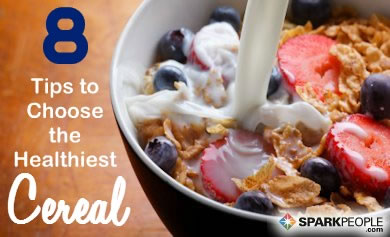|
A recent report highlighted what we nutrition minded people have known for a while, which is nuts provide good nutrition in a tasty package. Tree nuts in particular provide heart healthy benefits due to their healthy fat source and also provide a good quality protein from a non-animal source. Many times walnuts and almonds are talked about the most. Recently, more and more commercials have popped up in my region of the country for a small tasty alternative tree nut that may be even more healthy. The pistachio is a small, egg-shaped nut that slowly grows on trees in a light brown-beige shell with a light-green kernel. Pistachios are high in monounsaturated fats like many other more popular nuts and assist with reducing blood cholesterol and lower risks of cardiovascular disease. Two unique carotenoids act as protective antioxidants in the pistachio and are not routinely found in other popular nuts. Lutein and zeaxanthin have been found to protect tissues from free radical damage especially in the eye. This reduces risks for older individuals related to macular degeneration, which is the leading cause of visual impairments and blindness in the United States. Here is the basic nutritional information for a 1 oz serving of common tree nuts. Almonds – 24 nuts/oz Calories – 160 Protein – 6 grams Total Fat – 14 grams Saturated Fat – 1 gram Monounsaturated Fat – 9 grams Polyunsaturated Fat – 3 grams Fiber – 4 grams Brazils – 6 nuts/oz Calories – 190 Protein – 4 grams Total Fat – 19 grams Saturated Fat – 4 grams Monounsaturated Fat – 7 grams Polyunsaturated Fat – 6 grams Fiber – 2 grams Cashews – 18 nuts/oz Calories – 160 Protein - 4 grams Total Fat – 13 grams Saturated Fat – 3 grams Monounsaturated Fat – 8 grams Polyunsaturated Fat – 2 grams Fiber – 1 gram Pecans – 19 halves/oz Calories – 200 Protein - 3 grams Total Fat – 20 grams Saturated Fat – 2 grams Monounsaturated Fat – 12 grams Polyunsaturated Fat – 6 grams Fiber – 3 grams Walnuts – 14 halves/oz Calories – 190 Protein – 4 grams Total Fat – 18 grams Saturated Fat – 1.5 grams Monounsaturated Fat – 2.5 grams Polyunsaturated Fat – 13 grams Fiber – 2 grams Pistachios – 49 nuts/oz Calories – 160 Protein - 6 grams Total Fat – 13 grams Saturated Fat – 1.5 grams Monounsaturated Fat – 7 grams Polyunsaturated Fat – 4 grams Fiber – 3 grams Pistachios provide nutritional benefits like many other tree nuts. Here are few nutritional highlights I think are worth highlighting a bit more. Pistachios provide the most potassium per one ounce serving of any major tree nut. This is extremely beneficial if you battle high blood pressure and need low sodium, high potassium foods to improve your electrolyte balance. Pistachios and cashews provide the lowest total fat and saturated fat per one ounce serving but pistachios also have the additional benefit of providing the most dietary fiber of all tree nuts as well. Pistachios also provide the most thiamin, B-6, and beta-carotene of all tree nuts while also providing a small amount of vitamin A, which is not found in others. When selecting pistachios it is best to choose those still in the shell and that are unsalted when possible. It is also best to select those that are in their natural light green color versus those that have been dyed. Pistachios may be stored in airtight containers in the refrigerator for up to three months and up to six months when placed in the freezer. For this reason, if you find the opportunity to buy them in bulk to save money, it is a safe and cost effective way to go. Pistachios are known as the skinny nut because they are lower calorie, lower fat, higher fiber nuts that offer the most nuts per serving. If they haven't been in your healthy eating plan, perhaps they should be. Do you eat pistachios? What is your favorite way to enjoy them? |
More From SparkPeople
|










.png)









